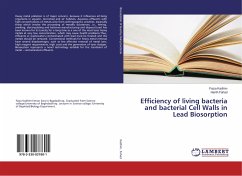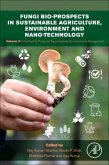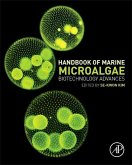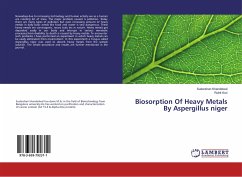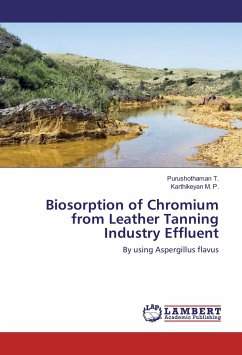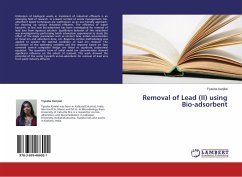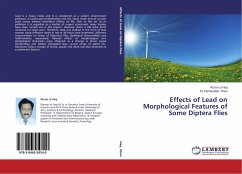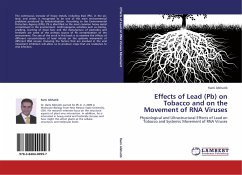Heavy metal pollution is of major concern, because it influences all living organisms in aquatic, terrestrial and air habitats. Aqueous effluents with high concentrations of metals arise from anthropogenic activities, especially those which involve the processing of metallic substances, i.e., mining, smelting, electroplating and batteries manufacturing and disposal Lead has been known for its toxicity for a long time as a one of the most toxic heavy metals at very low concentration, which may cause health problems Thus, effluents or wastewaters contaminated with lead must be treated and the metals should be removed. Conventional methods for heavy metal removal have several disadvantages, such as less effective removal of metal ions, high reagent requirements, high costs and the generation of toxic sludges. Biosorption represents a novel technology suitable for the treatment of metal - contaminated effluents.

